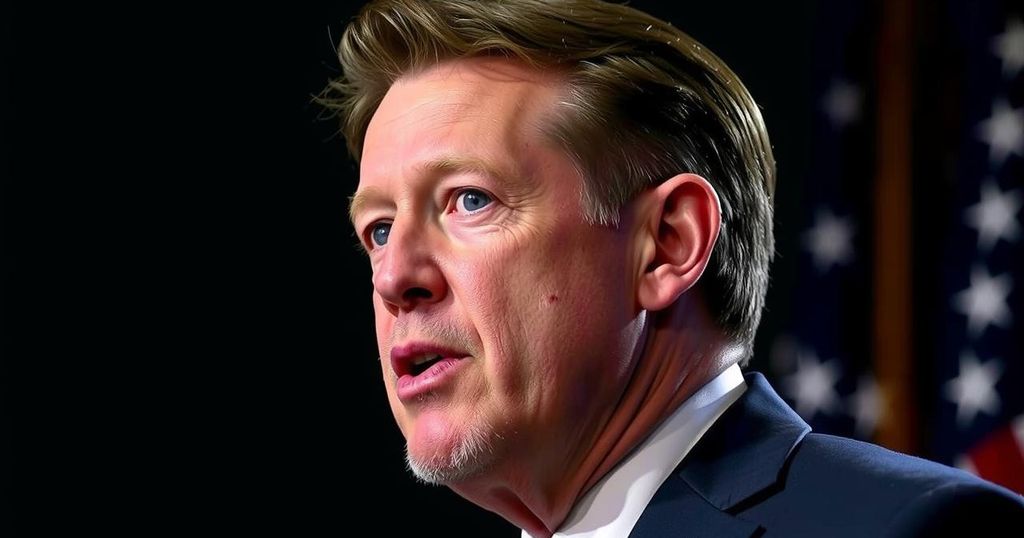Unlikely Meeting: Sir Keir Starmer and Kamala Harris Ahead of US Election

Sir Keir Starmer is unlikely to meet Kamala Harris before the US election as he is attending a Commonwealth leaders’ summit in Samoa. Tensions have arisen between the Labour Party and Trump’s campaign regarding allegations of foreign interference, following Labour staff volunteering for Harris. Starmer has denied damaging relationships with either campaign while asserting that Labour’s actions were compliant with US election laws. The upcoming election on November 5 poses significant implications for US-UK relations.
Sir Keir Starmer is not expected to meet Vice President Kamala Harris prior to the US presidential election scheduled for November 5, as indicated by Downing Street. Currently, Sir Keir is attending a Commonwealth leaders’ summit in Samoa while the campaign in the US intensifies. The Labour Party has recently faced tensions with the Trump campaign due to allegations of campaign rule violations stemming from Labour staffers who volunteered for Harris’s campaign. The Trump campaign has lodged a complaint with the Federal Election Commission, asserting that the Labour Party’s activities constituted illegal foreign contributions to the Harris campaign. Labour officials refute this claim, stating that costs related to the activities of Morgan McSweeney and Matthew Doyle, who attended a Democratic convention, were covered by Labour itself and a think tank respectively. They emphasized that these individuals did not provide direct assistance to the Harris campaign. Despite the Trump team’s accusations regarding Labour activists who volunteered in support of Harris, many Labour figures, including Cabinet Minister Steve Reed, contended that no financial organization supported these individuals’ trips. Sir Keir Starmer clarified that these activists were acting as volunteers in their personal time. The controversy originated from a social media post by Sofia Patel, Labour’s head of operations, mentioning a recruitment effort for staff to campaign for Harris in North Carolina. According to FEC regulations, foreign nationals may volunteer in US political campaigns as long as they are not compensated. Labour representatives maintain that their activities complied with these rules, though there is concern about potential ramifications for US-UK relations depending on the election outcome. Additionally, Scotland Office minister Kirsty McNeill withdrew from a scheduled online event in support of Harris amid accusations that her participation represented undue partisan alignment. Responding to the allegations during his travel to Samoa, Sir Keir assured that the situation would not jeopardize his rapport with Donald Trump, noting their recent dinner in New York as evidence of ongoing diplomatic relations. He conveyed confidence that the UK would retain a robust partnership with the US, regardless of Tuesday’s election results. Meanwhile, Nigel Farage of Reform UK has claimed that the LinkedIn post breached US election laws by not adequately stating that volunteers would need to fund their own travel. Farage emphasized the importance of understanding electoral regulations when engaging in political advocacy in the US.
This article discusses the strained relations between the Labour Party in the UK and the Trump campaign, particularly concerning allegations of foreign interference in the US election due to Labour staffers volunteering for Vice President Kamala Harris’s campaign. It highlights ongoing tensions, official responses, and the complexities surrounding international political engagement, particularly as the US approaches its presidential election. The implications of these events for US-UK relations, particularly in light of differing political outcomes, form a critical backdrop to the narrative.
In summary, Sir Keir Starmer’s anticipated absences from meetings with Kamala Harris before the US elections, coupled with arising tensions between the Labour Party and the Trump campaign regarding allegations of foreign contributions, highlight the intricate nature of international political relations. As both parties navigate these circumstances, the outcome of the election could significantly influence the longstanding diplomatic ties between the UK and US.
Original Source: www.bbc.com








